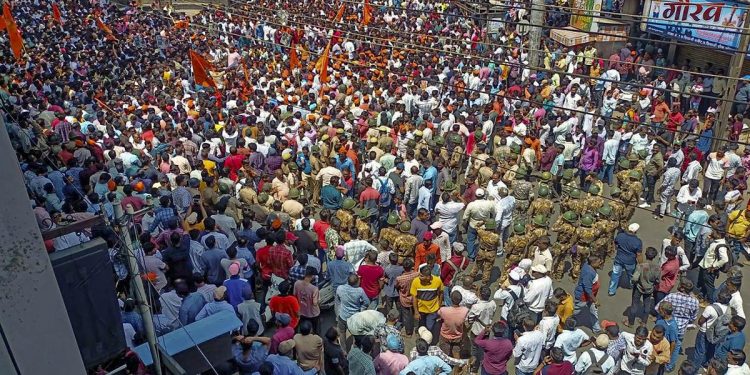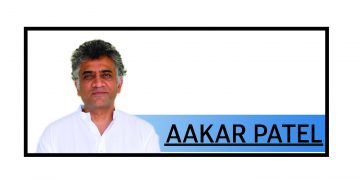After tasting bitter defeat in the recent Karnataka Assembly elections only few months before the 2024 Lok Sabha polls, the BJP seems to be in a tearing hurry to re-invent its main political narrative of communal polarisation. This seems to be more so as it has not much to show on the economic front. The subtext of the communal plot will be to remind voters of the old choice between Prime Minister Narendra Modi and Congress leader Rahul Gandhi for the prime ministerial post. This could be the reason why the ghost of the 17th century Mughal emperor, Aurangzeb, is being resurrected to demonise Moslems and sharpen communal divide.
The communal clashes in several places in Maharashtra during the past few days and the utterances of BJP leaders, including Union Home Minister Amit Shah and Deputy Chief Minister of Maharashtra, Devendra Fadnavis, point towards the crystalisation of such an electoral strategy of the saffron brigade in the coming days.
In the same state, a man who allegedly used Aurangzeb’s image as his WhatsApp profile picture was arrested after the issue was raised by a Hindoo organisation. The screenshot of the profile picture was submitted to the police by the organisation, leading to registration of a case against the Navi Mumbai resident and prompt action.
Aurangzeb died more than three centuries ago, but the BJP has exhumed him for reaping electoral dividends. This Mughal emperor is tailor-made for whipping up communal sentiments since he is known to be a bigoted and intolerant person.
Some Hindoo outfits claim that Aurangzeb demolished thousands of temples. This claim is not substantiated. On the other hand, historians say he was responsible for the destruction of a few dozen temples. This is why no other Mughal ruler suited the anti-Moslem political narrative after Hindoo sentiments against Babur – the founder of the Mughal empire – had been fully exploited through the demolition of Babri Masjid and the Supreme Court’s ruling on the construction of the Ram temple in the complex.
The BJP used, with barely any success, the sentiments over Lord Hanuman to sway voters in Karnataka. This was done after the Congress, in its election manifesto, promised to ban groups like the Bajrang Dal if they were found to foment communal trouble and breach peace. The Karnataka voters, however, saw to it that the communal agenda was not allowed to distract attention from economic issues. The other plank was the much talked about ‘40% commission’ by the then incumbent BJP in the state which helped nail its poll prospect. The Congress ended up dislodging the Basavaraj Bommai government.
This seems to have caused panic in the BJP leadership which probably has now made it desperate to go for a high pitched electoral campaign with communal overtones. Here steps in the figure of Aurangzeb as its new political tool. The weapon can be sharpened most in Maharashtra where Aurangzeb is regarded as a hated figure for his war with the state’s iconic hero Shivaji. Aurangzeb also killed Shivaji’s son and his tomb is located in the state. As such he can be easily made the rallying point of Hindoo mobilisation. In fact, PM Modi himself had begun the process of turning Aurangzeb into the focal point of anti-Moslem sentiments in 2022, while speaking from the Red Fort in New Delhi, built by the Mughals, at a programme to mark the 400th birth anniversary of Guru Tegh Bahadur, the ninth Sikh guru. He had then said, “Aurangzeb severed many heads, but he could not shake our faith.”
Political parties, including the Shiv Sena (UBT), the Nationalist Congress Party (NCP) and the Congress blamed the BJP and the Shiv Sena (Shinde) for exacerbating communal tension in Maharashtra. Amit Shah deliberately raised the question of Aurangzeb’s bigotry at a rally in the state to stoke communal passion. He also insisted the Opposition is trying to pit Rahul Gandhi against Narendra Modi for the top post. Sharad Pawar of the NCP was quick to understand the ploy and he immediately said the Opposition needs only to get united and its choice of the PM would be decided later.
The country, it seems, will see more such communal polarisation as the days for the 2024 LS polls approach. It will finally be for the voter to decide which is more relevant for her: A better life or a more stringent religion.






































